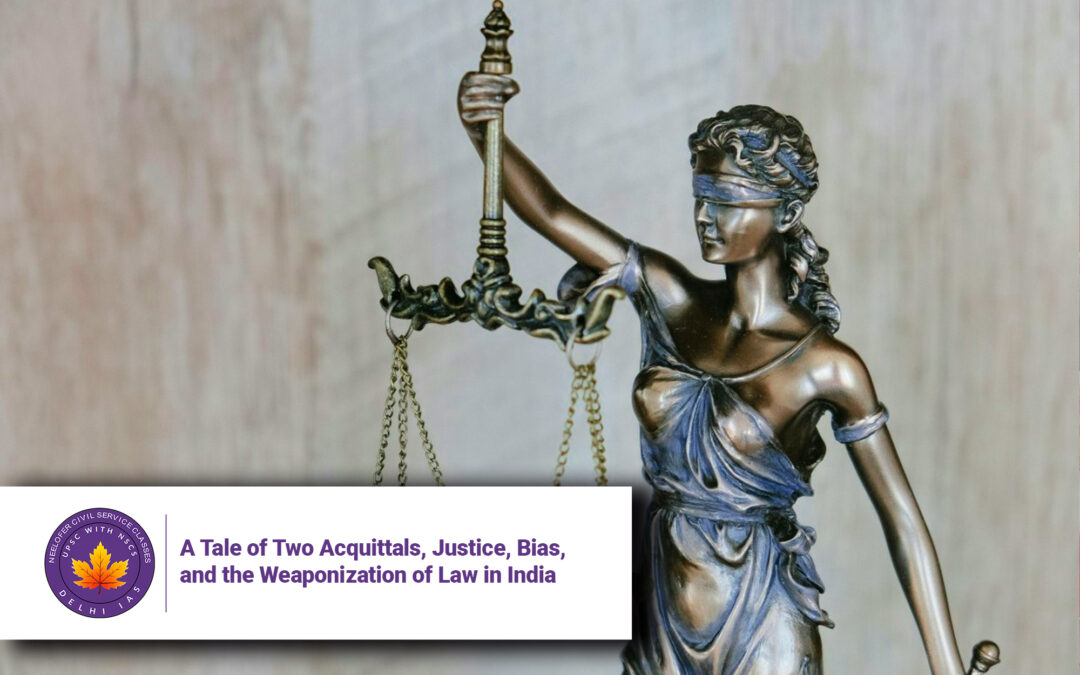A Tale of Two Acquittals, Justice, Bias, and the Weaponization of Law in India
Introduction
Two high-profile terror cases—the 2006 Mumbai 7/11 train blasts and the 2008 Malegaon bombings—ended in acquittals in July 2024, raising disturbing questions about India’s criminal justice system. While both verdicts cited prosecutorial failures, the stark differences in how the cases were handled expose deep-seated biases in law enforcement and political interference.
This article examines:
-
The similarities and contrasts in the two acquittals.
-
Allegations of torture in the 7/11 case vs. political leniency in Malegaon.
-
The broader implications for justice, minority rights, and state accountability.
-
Why some acquittals provoke outrage while others are ignored.
The Cases: A Brief Overview
1. The 7/11 Mumbai Train Blasts (2006)
-
What happened? Seven coordinated bombings on Mumbai’s suburban trains killed 209 people and injured over 700.
-
Accused: 13 Muslim men linked to the banned Students’ Islamic Movement of India (SIMI) and Lashkar-e-Taiba (LeT).
-
Conviction (2015): A special MCOCA court sentenced 5 to death and 7 to life imprisonment.
-
Acquittal (2024): The Bombay High Court overturned convictions, citing coerced confessions, lack of evidence, and police torture.
2. The Malegaon Blast (2008)
-
What happened? A bomb exploded near a mosque in Malegaon, Maharashtra, killing 6 people and injuring 100.
-
Accused: Initially, Muslim men were arrested, but later, Hindu extremists (including Sadhvi Pragya Thakur) were charged under anti-terror laws.
-
Acquittal (2024): An NIA court acquitted all accused, citing shoddy investigation and political interference.
Similarities: A Failing Prosecution
Both cases collapsed due to prosecutorial incompetence, but the reasons differ starkly:
| Factor | 7/11 Case | Malegaon Case |
|---|---|---|
| Evidence | Relied on tortured confessions | Evidence tampering, witnesses turned hostile |
| Prosecution | Overzealous, brutal interrogations | Deliberately weak, prosecutor removed |
| Judicial Remarks | HC called out inhuman torture | Court noted political interference |
The common thread? The state failed to deliver justice—either by fabricating guilt or suppressing truth.
Dichotomies: Justice for Some, Impunity for Others
1. Torture vs. Leniency
-
7/11 Accused:
-
Torture methods described in the Bombay HC judgment (Para 1210):
-
Locking cockroaches in vests
-
Forcing rats into underwear
-
Waterboarding-style interrogation
-
-
Outcome: Acquitted after 18 years in jail.
-
-
Malegaon Accused:
-
Prosecutor Rohini Salian alleged she was pressured to go soft on Hindu extremists.
-
NIA dropped charges against key accused (Sadhvi Pragya, Lt. Col. Purohit).
-
Outcome: Walked free despite strong initial evidence.
-
2. Selective State Response
-
7/11 Case: Maharashtra govt. immediately appealed the acquittal (within 3 days).
-
Malegaon Case: No urgency—no appeal filed.
-
Supreme Court’s Intervention: In 7/11, SC barred the HC verdict from being a precedent, signaling discomfort with the acquittal.
3. Media & Public Reaction
-
7/11 Acquittal: Framed as a “failure of anti-terror laws”—outrage over “letting terrorists go.”
-
Malegaon Acquittal: Minimal coverage, no political backlash.
The Bigger Problem: Law as a Political Weapon
1. Anti-Terror Laws & Minority Targeting
-
Muslim accused (7/11, Batla House, Mecca Masjid) face harsher scrutiny, torture, and media trials.
-
Hindutva-linked accused (Malegaon, Samjhauta Express) get leniency, dropped charges, or acquittals.
-
Studies show Muslims are disproportionately charged under UAPA, MCOCA.
2. The Role of Prosecutors & Investigators
-
Rohini Salian’s affidavit exposed how political pressure derailed Malegaon’s trial.
-
In 7/11, police fabricated evidence—yet no accountability.
3. Justice for Victims?
-
Who really bombed Mumbai & Malegaon?
-
No answers, no closure for families of 215+ dead.
-
State’s duty: Find the real culprits, not scapegoats.
Conclusion: A Broken Justice System
These two acquittals reveal a two-tiered justice system:
-
For minorities: Brutal policing, media vilification, wrongful convictions.
-
For majorities: Political protection, soft prosecution, easy acquittals.
Unless India reforms its investigation agencies, prosecutors, and anti-terror laws, justice will remain selective, politicized, and unjust.
5 Q&A on the 7/11 & Malegaon Acquittals
1. Why were the 7/11 convictions overturned?
Answer: The Bombay HC found no credible evidence, only torture-induced confessions. The prosecution failed to prove guilt beyond doubt.
2. What was the role of political interference in Malegaon?
Answer: Special Prosecutor Rohini Salian alleged she was pressured to weaken the case against Hindu extremists. Key evidence was ignored.
3. Why did the Maharashtra govt appeal the 7/11 acquittal but not Malegaon’s?
Answer: Political bias—the state was eager to challenge a Muslim acquittal but indifferent to a Hindu extremist exoneration.
4. Are anti-terror laws like UAPA & MCOCA misused?
Answer: Yes. Minorities are disproportionately targeted, while Hindutva-linked accused often get bail or acquittals.
5. What happens to the victims’ families now?
Answer: They remain in limbo. No justice, no answers. The state must reinvestigate properly—without bias or torture.







